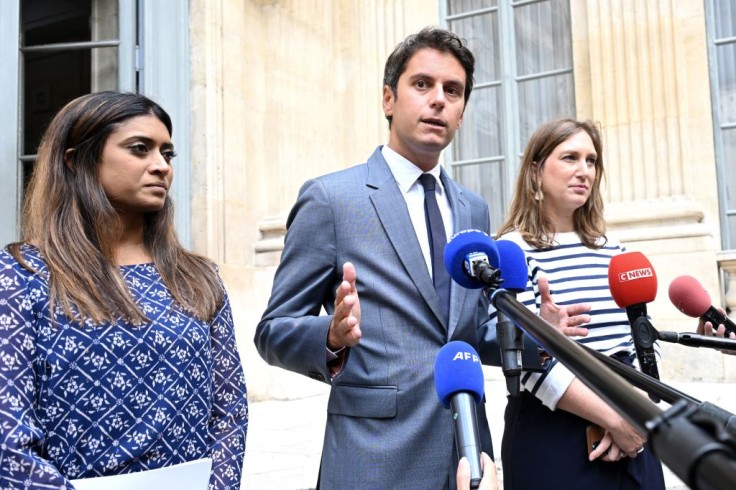
France takes a controversial step with its decision to enforce an Abaya ban in schools.
Effective with the upcoming academic year, the move has ignited discussions surrounding Muslim identity and the French principle of Laïcité.
France Enforces Abaya Ban in Schools: Upholding Laïcité or Marginalizing Muslim Identity?
As the academic year is set to commence in September, France has reignited the national and international debate surrounding religious freedom and secularism.
The French government recently announced an Abaya ban in schools, targeting the long, robe-like garment commonly worn by Muslim women.
In an interview with TF1, French Education Minister Gabriel Attal justified the ban by stressing the importance of Laïcité-France's deeply ingrained principle of the separation of church and state.
Attal explained that schools are a platform where the religious identity of students should not be conspicuous, underscoring the role of Laïcité in maintaining this neutral environment.
Laïcité: A Cornerstone or a Contention Point in French Society?
The principle of Laïcité is not new in French political and educational spheres; it dates back to the 1905 Law on Separation of Church and State.
Yet, its interpretation has increasingly come under scrutiny, particularly with the rise of the Islamic presence in France.
Critics argue that Laïcité is being manipulated to marginalize Muslim identity, making it a point of contention rather than a unifying force.
This new Abaya ban in schools has sparked heated debates, with opposition figures and legal experts challenging the government's interpretation of Laïcité.
For instance, Danièle Obono, a prominent opposition politician, described the decision as a "new Islamophobic campaign," echoing the sentiments of those who believe the move further isolates France's Muslim community.
Rim-Sarah Alouane, a legal scholar, stated that such policies twist the liberal core of the 1905 law, further fracturing France's social fabric.
Opposition from Various Sectors: The Question of Muslim Identity
Not just political figures, but academics and sociologists have also weighed in on how this Abaya ban in schools could potentially affect Muslim identity.
Sociologist Agnes De Feo pointed out that the abaya is often worn more as a fashion statement or personal identity rather than strict religious adherence.
"It's really a shame because people will judge these young girls, while it (the abaya) is a teenage expression without consequences," De Feo said.
Jean-Luc Mélenchon, who was a contender in France's 2022 presidential election, also questioned the timing and necessity of the ban.
He lamented how it polarizes the return to school, creating an artificial religious war about a woman's dress, when France should be focusing on fostering a more inclusive form of Laïcité.
Clarity or Controversy: France's Path Forward
While the ban on abayas has drawn criticism for potentially harming Muslim identity and twisting the spirit of Laïcité, it has also found some support.
Didier Georges, the national secretary of the SNPDEN-UNSA union of school principals, praised the government for providing a clear rule, thereby helping educators navigate a complicated issue.
However, this recent decision adds to France's record of controversial policies targeting Islamic attire, such as last year's ban on hijabs in sports and the earlier prohibition of niqabs.
As the nation grapples with these complex issues, one thing is clear: France is at the epicenter of a global discussion on Muslim identity, Laïcité, and what it means to be a secular state in the 21st century.
In the wake of this controversial Abaya ban in schools, France finds itself navigating a fine line between upholding its values and risking social discord.
The decision opens up more questions than answers, leaving the world to watch as France attempts to balance its commitment to Laïcité against the backdrop of a diverse and evolving society.